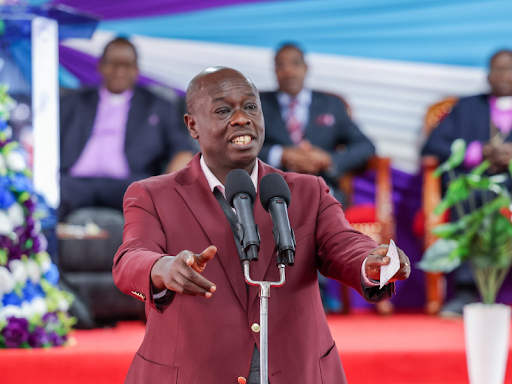
The reading of the Constitution on the strict provisions and timelines for the replacement of a deputy president shows that Kenyans might have a new second in command before the weekend.
Article 149 of the 2010 Constitution provides that the president has room to fill the vacancy of his deputy within 14 days after a vacancy arises.
Analysts now say the timeline provided gives the president leeway to nominate Gachagua's replacement as soon as immediately the Senate confirms his impeachment.
The provisions do not favour Deputy President Rigathi Gachagua in seeking a court injunction against the National Assembly on Friday.
The besieged DP on Tuesday and Wednesday failed to block his Senate trial after judges ruled that they could not interfere with Parliament's constitutional mandate.
The National Assembly has already called for a special sitting on Friday amid speculations that MPs will have an opportunity to vote on President William Ruto's DP nominee.
The Senate has Wednesday and Thursday to hear and determine the impeachment motion with a vote likely to be taken late tomorrow.
"The president can pick a deputy any time after the Senate votes and forward the name to Parliament for voting on Friday. The Deputy President can be sworn in on Friday afternoon,'' says political analyst Alexander Nyamboga.
Article 148(6)(c) says a vacancy in the office of the DP can arise on resignation, death or removal from office of the Deputy President.
In Gachagua's case on impeachment, the vacancy shall arise immediately after the Senate votes.
A gazette notice of the Senate resolution is likely to be swiftly done before Friday morning to allow the National Assembly to vote on Ruto's nominee the same day.
In the past, gazette notices on the Senate impeachment of governors have been swiftly done at night or early mounting after sensors have taken a vote.
Once the removal from office is gazetted on Thursday night or Friday morning, Gachagua will lose all the trappings of power including his elaborate state security and vacation of the official residence of the Deputy President at Karen.
The Constitution does not provide for approval hearings or submission of memoranda from Kenyans once a new DP is named.
The law only allows MPs to vote by simple majority on the name proposed by the president.
The Constitution says that once the president submits the nomination to the National Assembly, MPs shall vote to reject or endorse the name. There is also no requirement for a two-thirds majority.
This means that the National Assembly is not obliged to conduct public participation or vetting of the deputy president nominee.
This is unlike the case of the deputy governors, where once the governor submits the name, MCAs conduct approval hearings including public participation before voting.
"Within fourteen days after a vacancy in the office of Deputy President arises, the President shall nominate a person to fill the vacancy and the National Assembly shall vote on the nomination within sixty days after receiving it,'' reads Article 149(1) of the Constitution.
Once removed from office, Gachagua will forfeit sweeping benefits accorded to retired and former deputy presidents as he is deemed not to have served a full term.
"If a person assumes office as Deputy President under clause (1), then, for the purposes of Article 148 (8), the person shall be deemed (a) to have served a full term as Deputy President if, at the date on which the person assumed office, more than two and a half years remain before the date of the next regularly scheduled election under Article 136 (2) (a); or (b) not to have served a term of office as Deputy President, in any other case,'' reads Article 149(1).
Gachagua completed two years in office on September 13 and would have served two and a half years by February 13, 2025.
The law requires that once MPs vote in favour of the DP nominee, the person shall then take the oath of office as provided for under the Assumption of Office of the President Act.
The Act states that the Deputy President-elect shall take and subscribe to the oath or affirmation of allegiance and oath or affirmation for the execution of the functions of office in accordance with Article 148 of the Constitution.
Article 148(4) provides that the swearing-in of the Deputy President-elect shall be before the Chief Justice or, in the absence of the Chief Justice, the Deputy
Chief Justice and in public.












